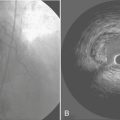Skin is probably the largest organ of the body and yet it can be subject to neglect or misinformation. The environment is a major contributor to skin damage and being unaware of the effect it can have from sun damage, dryness, sun spots, and wind burn to many others, can be extremely detrimental in the long run.
In certain countries in the world the sun is so strong that skin cancer is quite prevalent if people do not take the proper precautions like wearing hats and sunscreen. Here are a few ways to protect your skin from environmental damage and keep its barrier healthy, hydrated and aging gracefully.
1. UVA & UVB Rays
The sun is the number one cause of environmental damage you should pay attention to. A common misconception is that if you are mostly staying indoors (as is the case with office jobs) and only commuting back and forth, you do not need to wear sunscreen. Nothing could be further from the truth as research has shown that strong sunlight permeating through windows is also an aggressor towards your skin.
UV rays are able to negatively fast track aging and cause collagen to break down. Free radicals are always present in the environment but the sun also causes their production to happen in the deeper layers of the skin.
Use a broad spectrum protective sunblock and always reapply every few hours especially if you have been sweating or swimming. Wear a hat and other protective clothing during summer and heat waves in order to protect your skin from damage. Newer versions of sunscreen can make it easier to reapply while wearing makeup such as foundations with SPF and powdered sunscreen.
2. The Air We Breathe
Pollutants in the air can become absorbed by your skin and cause it to break down with oxidative damage and stress. Air pollutants include chemicals like hydrocarbons and nitrogen dioxide and they can also include dirt and liquid droplets. All of these pollutants are instrumental in triggering inflammation and many people can get rashes, eczema and acne vulgaris due to them.
Acne in itself is damaging to the skin and can cause discomfort and scarring if not dealt with properly. You may be tempted to simply buy acne products from the supermarket but a trip to a good dermatologist in Glenwood can set you on the path to recovery sooner as a doctor can better address the causes of the skin issue.
3. Take The Right Supplements
A healthy diet is the foundation of good skin so consume less sugar and carbs to prevent acne, hormonal issues that lead to hyperpigmentation or other problems. Taking supplements like hyaluronic acid, collagen and biotin can strengthen the skin barrier, quicken recovery time and boost hydration which will in turn prevent and treat fine lines, skin damage and wrinkles.
Conclusion
The importance of a skincare routine should never be underestimated and supplements and a good diet should always be paired with appropriate topical treatments to address your skin concerns.






